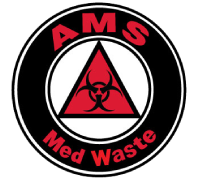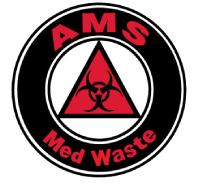Pharmaceutical waste management is critical for healthcare facilities, pharmacies, and environmental management organizations. Proper pharmaceutical waste disposal is essential to protect public health and the environment. One of the primary challenges in managing pharmaceutical waste is understanding the differences between RCRA and non-RCRA pharmaceuticals. This blog will delve into these two categories and discuss the key differences and implications for proper waste management.
What is RCRA?
The Resource Conservation and Recovery Act (RCRA) is a federal law enacted in 1976 to govern hazardous waste management. It establishes guidelines for generating, transporting, treating, storing, and disposing hazardous waste. The primary goal of RCRA is to protect human health and the environment from the potential hazards of waste disposal.
Under RCRA, certain pharmaceuticals are considered hazardous waste due to their toxicity, reactivity, ignitability, or corrosivity. These pharmaceuticals are RCRA pharmaceuticals and must be managed according to strict guidelines set forth by the Environmental Protection Agency (EPA) and state regulatory agencies.
Identifying RCRA Pharmaceuticals
RCRA pharmaceuticals are identified by their active ingredients and specific characteristics that make them hazardous. The EPA has established a list of hazardous waste codes corresponding to certain pharmaceutical ingredients and characteristics.
Some of the common RCRA pharmaceuticals include:
– Warfarin and salts: An anticoagulant with the hazardous waste code P001
– Nicotine and salts: A stimulant with the hazardous waste code P075
– Epinephrine: A hormone and neurotransmitter with the hazardous waste code P042
– Nitroglycerin: A vasodilator with the hazardous waste code P081
– Chemotherapy drugs: Many chemotherapy drugs are considered hazardous waste due to their toxicity
Healthcare facilities and pharmacies must maintain an up-to-date pharmaceutical inventory to ensure RCRA hazardous waste is identified and managed according to regulations.
Non-RCRA Pharmaceuticals
Non-RCRA pharmaceuticals do not meet the criteria for hazardous waste under RCRA. The majority of pharmaceuticals fall into this category. Although non-RCRA pharmaceuticals are not subject to the same stringent regulations as RCRA pharmaceuticals, they still require proper disposal to prevent harm to human health and the environment.
Some examples of non-RCRA pharmaceuticals include:
– Over-the-counter medications: Aspirin, acetaminophen, ibuprofen, and other common over-the-counter drugs
– Prescription medications: Antibiotics, antivirals, and other prescription drugs that do not contain hazardous ingredients
– Dietary supplements: Vitamins, minerals, and herbal products
Despite not being classified as hazardous waste, non-RCRA pharmaceuticals can still pose risks if not disposed of properly. For example, when flushed down the toilet or thrown in the trash, these substances can contaminate water supplies and harm aquatic life.
Proper Management of RCRA and Non-RCRA Pharmaceuticals
The key to effective pharmaceutical waste management is understanding the differences between RCRA and non-RCRA pharmaceuticals and implementing appropriate disposal practices for each type. Some best practices include:
Segregation:
RCRA and non-RCRA pharmaceuticals to ensure proper disposal and prevent cross-contamination. This includes storing hazardous waste in designated containers and areas away from non-hazardous waste.
Training:
Educate staff on the proper handling, storage, and disposal of both RCRA and non-RCRA . Regular training can prevent accidental mismanagement of waste and ensure compliance with regulations.
Documentation:
Maintain accurate records of pharmaceutical waste generation, storage, and disposal. This includes tracking the type and quantity of waste, dates of disposal, and the disposal method used.
Disposal:
Working with a reputable, licensed pharmaceutical waste management company ensures proper disposal of RCRA and non-RCRA pharmaceuticals. These companies can provide guidance on regulatory compliance and best practices for waste management.
By understanding the differences between RCRA and non-RCRA and following best practices for waste management, healthcare facilities and pharmacies can protect public health and the environment while maintaining compliance with federal and state regulations.
AMS MedWaste: Pharmaceutical Waste Management Solutions for Healthcare Facilities
Navigating the world of pharmaceutical waste management can be complex, as it involves understanding and adhering to numerous regulations, guidelines, and best practices. Partnering with a reliable and experienced waste management company like AMS MedWaste can ensure the proper handling and disposal of RCRA and non-RCRA pharmaceuticals. Our team of experts will guide you through regulatory compliance and provide best practices for waste management tailored to your facility’s needs.
Don’t wait any longer – safeguard public health and the environment by choosing AMS MedWaste as your pharmaceutical waste management partner. Contact us today to learn more about our comprehensive services and solutions.






